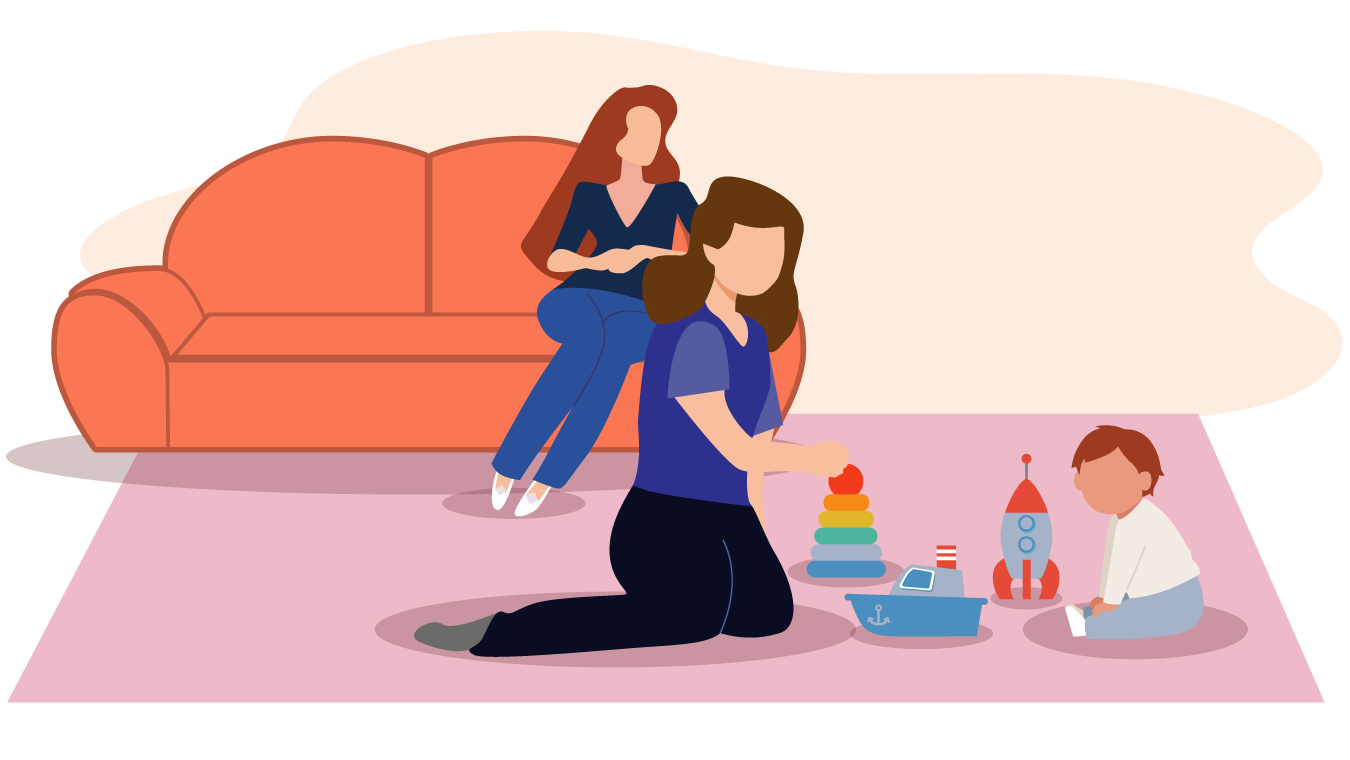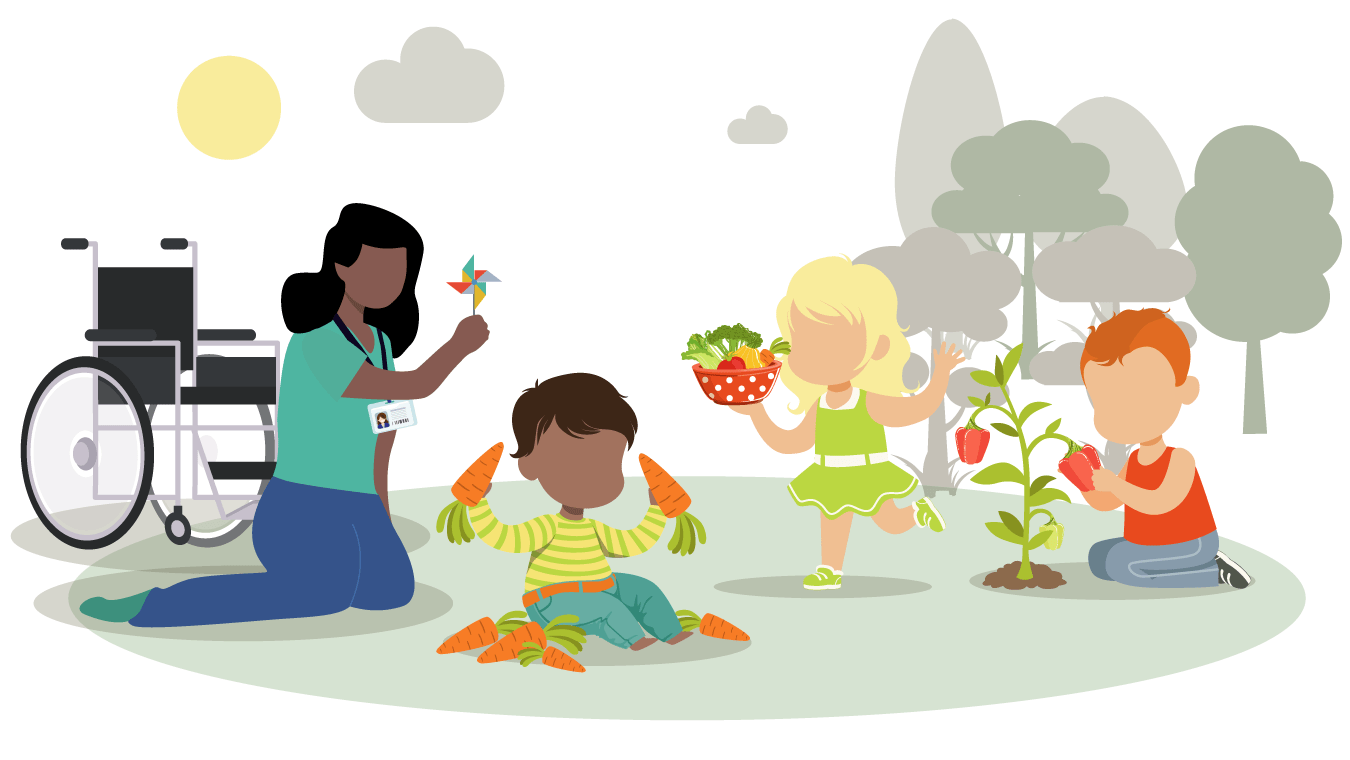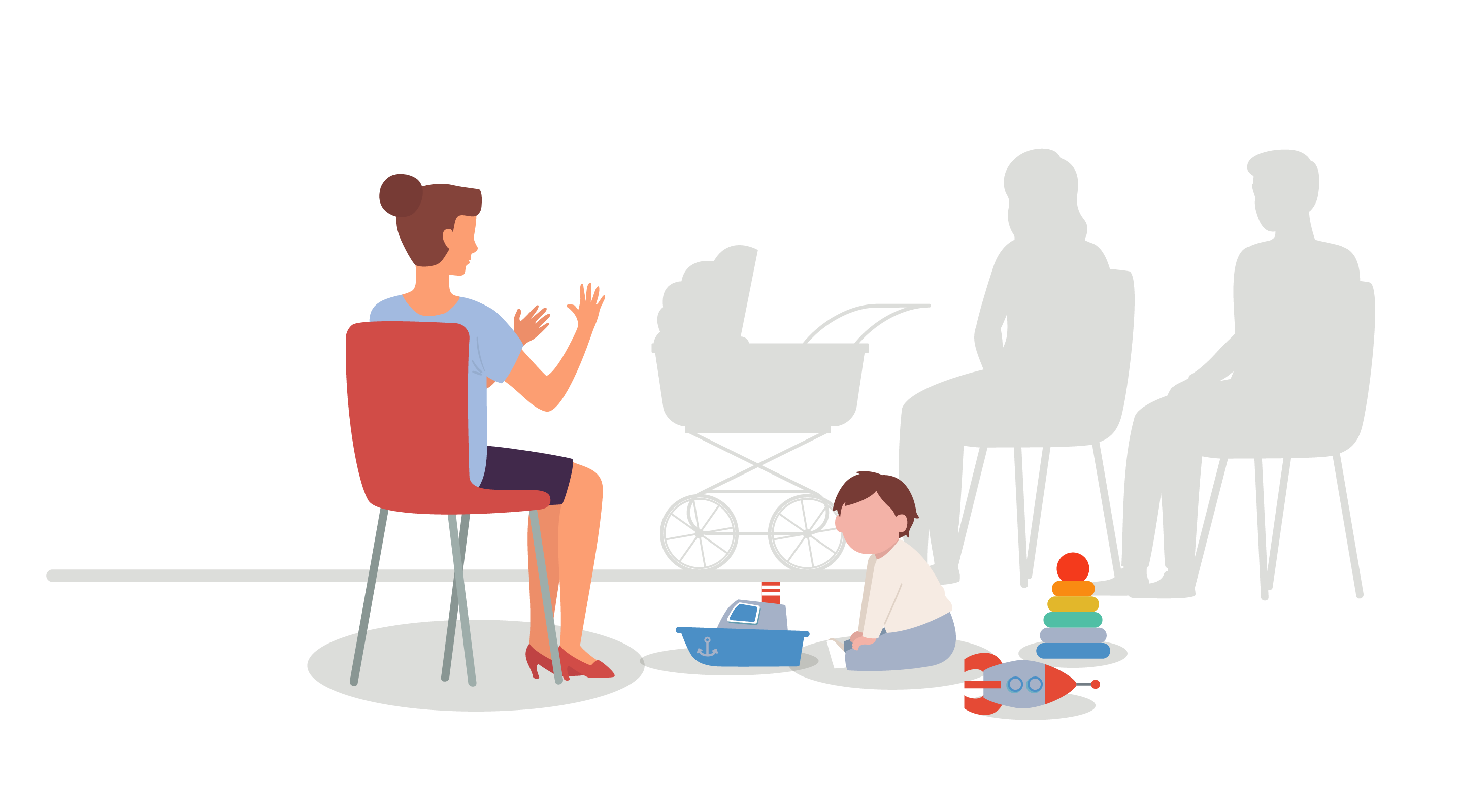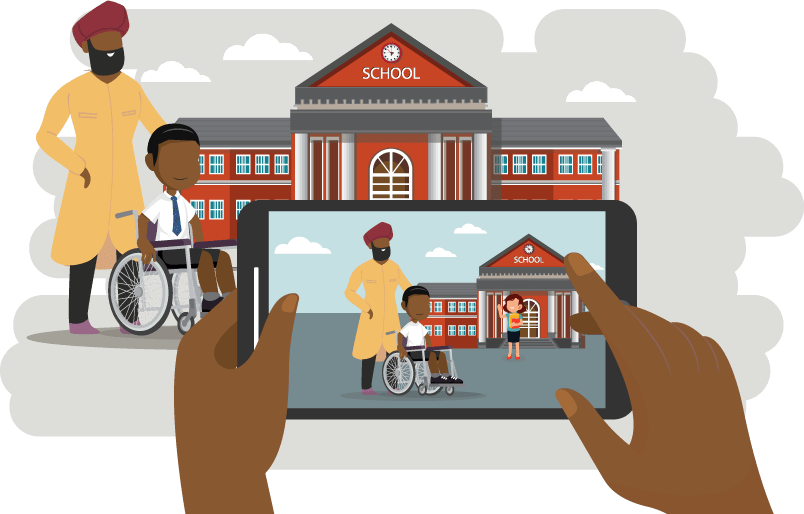Early Years Education, Childcare and SEND

Childcare / Education Settings
SEND Support
All childcare settings can meet the needs of children with Special Educational Needs and Disabilities (SEND). This includes:
- nurseries,
- childminders, and
- pre-schools.
The staff in a childcare setting will put together a written plan for each child with SEND. They will create this alongside parents and carers, health visitors or other specialists.
Your childcare setting might call the written plan a:
- Specific Support Plan
- Setting-Based Support Plan, or
- Provision Map.
These should help assess your child's needs and plan their support.
- Every childcare setting will have a staff member who is the lead for your child's learning needs. These are usually called the key person.
- Every childcare setting will also have a SEND specialist. They are usually called a Special Educational Needs Co-ordinator (SENCo).
- Every childcare setting should provide SEND information on their websites.
If you feel your child should have a written plan then ask your child's key person.
A written plan will list different ways of helping your child with their learning needs such as:
- identifying activities a child needs to practise, like communicating, focusing attention or socialising
- using the childcare setting space in a creative way. This is to provide and promote independent learning opportunities for children with SEND
- setting up small playgroups that meet a particular learning need for a child
- agreeing with you to refer to specialist support if required
If a child is identified as having SEND, the setting will follow the SEND Code of Practice. The Code of Practice sets out a ‘graduated approach’ of Assess, Plan, Do, Review.
Early years professionals will help a parent or carer find the most suitable nursery or early years provision in their area. They can then help the setting to meet their child’s needs.
Early years professionals include health visitors and the SEND Early Years' Service.
Childcare Special Educational Needs Co-ordinator (SENCo)
As outlined above, every childcare setting will have a SENCo. The SENCo's role includes:
- Looking for signs that a child might need extra help. If they do, they will liaise with their parents /carers to understand what the child needs.
- Making plans to give the child the right support. This includes making sure the nursery has everything needed to help the child.
- Teaching other childcare staff how to help children with SEND. This ensures all staff are confident in what they have to do to support them.
- Working with families and other experts to make sure the child gets the best help and support.
- Checking how the child is doing and changes the support if needed.
- Making sure the child's needs are heard and that the nursery is a good place for all children.
The SENCo's job is to make sure every child with SEND gets the help they need.
Government Guidance
Early Years Foundation Stage (EYFS) is national guidance. This guidance outlines how childcare settings should support all children in their learning. You can read the guidance on the main Government website:
You can also learn more about the SEND Code of Practice. This includes support every child with SEND can expect in a childcare setting:

Finding and Choosing Childcare
A child with significant SEND should be able to attend any childcare setting. They may need some extra support.
The East Sussex Community Information Service (ESCIS) directory can help you find childcare in your area. The directory lists nurseries, childminders, playgroups and pre-schools:
Family Information Service (FIS)
FIS provides information and assistance on various topics, including childcare.
You can contact FIS by:
- Phone - 0345 60 80 192
- Email - CS.CustomerRelations@eastsussex.gov.uk
Family Information Service (FIS) is part of East Sussex County Council.
Professional Association for Childcare and Early Years (PACEY)
PACEY has advice on the types of childcare and questions to ask childcare providers. Visit their website to find out more:
Coram
Coram are a charity that works with families. They provide information on how to find a suitable nursery and what to expect, on their website:
Amaze
Amaze are a local, independent charity. They produced a ‘Choosing Childcare’ fact sheet for East Sussex families. This fact sheet links to appropriate East Sussex services:
Early Years - Milestones
Early years settings will track the development of children in their care.
The Early Years Foundation Stage (EYFS) also ensures early years practitioners review a child's progress. They will then share a summary with parents at two points:
- between the ages of 24 and 36 months via the progress check, and
- at the end of reception via the EYFS profile
It is often during these progress checks that the degree to which a child might have SEND is identified. Planning is then put in place.
The Department for Education created non-statutory guidance documents to inform early years assessments. These documents explain how your child's development is monitored at these stages:
Early Years - Assess, Plan, Do, Review
When your child has SEND, their education setting should set out a written plan. This will explain how they will look after them and how they will support their learning. It may be called a:
- Specific Support Plan
- Setting-Based Support Plan, or
- Provision Map.
You can ask your child’s childcare setting what they call theirs.
All SEND support plans in East Sussex should follow the same process and steps. This is usually referred to as Assess, Plan, Do, Review.
It can also be called the Graduated Approach. This is to state the process of increasing and improving the level of support as more is learnt about the child and what works well for them.
These steps include:
Assess:
The childcare setting will be assessing how your child is learning. They will do this by comparing their progress to key milestones. The Early Years Foundation Stage (EYFS) lists these milestones. EYFS is national guidance. It maps out the learning standards for all children in a childcare setting.
Plan:
The childcare setting should work with you and any specialist professionals involved. You should all then set out what support your child should get to help them meet their learning outcomes.
Do:
The childcare setting will carry out the support plan for a set period of time.
Review:
The childcare setting will work with you and any relevant specialist professionals. They will then review:
- your child's progress
- where the plan was successful, or
- what needs changing.
The review process will decide if your child requires more support. It will also review if your child is making progress with the support they are receiving. Usually, a review takes place 3 times a year.
The Assess, Plan, Do, Review process is a continuous cycle. It involves learning about your child. This includes their needs and improving the support offered over time.
If your child has a support plan, their childcare setting should review it three times a year. Speak to your child’s childcare setting about how they carry out reviews and how they will involve you.

Early Years - Funding
Funded Childcare
The government could fund 15 to 30 hours of your child’s care, for up to 38 weeks a year. This can start as early as when your child is 9 months old.
The number of hours you can get depends on your child’s age and your circumstances. How you apply also varies.
Types of funded childcare include:
- All families - the universal offer
- Working families - the extended offer
- Families of disadvantaged 2-year-olds
- Foster carers
For more information, including how to apply, visit the main East Sussex County Council website:
Special Educational Needs Inclusion Fund (SENIF)
Early years providers can apply for extra funding in line with their early years entitlement hours. This includes nurseries, preschools and childminders. This supports children with lower levels or emerging levels of SEND.
To access this funding, early years providers must:
- have accessed support from the SEND Early Years' Service (SEND EYS), and
- have begun to implement support.
Not all children with SEND will need this extra funding. Most SEND support is the responsibility of the childcare setting. To find out if a child or your setting qualifies for the fund, ask your nursery or childminder to complete a referral to SEND EYS.
Before applying, please ensure you have read the Expectations Guidance document:
- View the SENIF - SENELF Expectations Guidance PDF
- Download the SENIF - SENELF Application Form (February 2025) Word document
Special Educational Needs Enhanced Level Fund (SENELF)
Early years providers can apply for extra funding for children with complex SEND. This includes nurseries, preschools and childminders. This funding is to support the hours children attend their early years provider.
To access this funding:
- the child must be receiving support from SEND EYS, and
- the provider must be able to evidence they are implementing specialist advice and guidance.
Only a small number of children with SEND will need this extra funding. Most SEND support is the responsibility of the childcare setting or can be met through access to the SENIF.
Before applying, please ensure you have read the SEN Matrix Costing Guidance:
- View the SEN Matrix Costings Guidance (September 2024) PDF
- View the SENIF - SENELF Expectations Guidance PDF
- Download the SENIF - SENELF Application Form (February 2025) Word document
Disability Access Fund
This is an annual, one-off direct payment to your early years provider. It is for 3 or 4-year-olds from the funding period after their third birthday. This includes January, April and September. They must also be receiving Disability Living Allowance (DLA).
This is an annual grant of £615 per child. It is funding an early year provider can use to buy equipment to help make reasonable adjustments to the setting.
The payment can’t split between two providers. If your child attends more than one provider, you must decide which one gets the funding.
To enable your early years provider to make a claim:
- show your provider proof that your child receives Disability Living Allowance, and
- complete the Disability Access Fund section on the parental declaration.
Find out more by visiting the Government web page for:
If you need help with a DLA claim, there are a few options. Citizens Advice and Hastings Advice and Representation Centre (HARC) can both help support you. Please note, due to capacity HARC may not always be able to take on new referrals. In this case, we recommend you contact your local Citizens Advice.
You can visit their websites to find out more:
Early Years - Education, Health and Care Plan
An Education, Health and Care Plan (EHCP), or EHC plan, is a legal document which describes:
- a child’s special educational needs
- the support they will get
- the outcomes the plan is aiming to achieve
An EHCP offers more involved and higher level support than a written plan.
A child under 5 should have an EHCP when their needs are severe. It is less common for a child under 5 to be considered for an EHCP. Most children receive an EHCP later in life. This is because there is usually more evidence of how they are not meeting age-related expectations.
There is very little difference between an EHCP for a child under 5 and an older child. The teams helping to write it will be different as the child gets older. Childcare settings or early years specialists will include their views in a child's EHCP when they're younger than 5.
The Assessment and Planning (A&P) team co-ordinate all EHC assessments and plans.
However, in most cases a child under 5 will first be referred to the SEND Early Years' Service. You can complete the referral yourself, or a professional can complete it. This includes:
- health visitors,
- a GP,
- a paediatrician, or
- a childcare setting.
Children with EHCPs also go through a different process to apply for primary school.
To find out more, visit this sites page on Education, Health and Care Plans.

SEND Early Years’ Service (SEND EYS)
The SEND Early Years’ Service (SEND EYS) supports pre-school aged children with SEND. This may include complex needs that create a barrier to learning and inclusion.
SEND EYS can provide support if:
- universal and targeted strategies are in place, but
- a child is not making progress
SEND EYS support children with one or more of the following:
- Severe or profound learning difficulties affecting communication and independence
- Significant developmental delays
- Significant physical delay or disability
- Autism or social communication difficulties that impact on inclusion
- Syndromes and neurological conditions with a lifelong impact on development
- Severe speech, language, and communication difficulties due to the above
SEND EYS offer advice and training for behavioural difficulties that affect attendance. They also support children who have English as an Additional Language:
Applying For and Starting School
Applying for school without an Education, Health and Care Plan (EHCP)
If your child has SEND but not an Education, Health and Care Plan, they should apply for a mainstream school. All schools are able to support children with SEND. Your child’s pre-school will also help communicate what support your child needs. This will help to ensure a smooth transition.
It is important to visit the school you would like to send your child to and speak to them about your child’s needs. Ask to meet with the Special Educational Needs Coordinator (SENCo). All mainstream schools have a duty to meet the needs of children with SEND. This is set out in the national SEND Code of Practice.
We list mainstream schools on our directory, alongside their SEND and accessibility information:
- Find a mainstream school on the 1Space directory
- Apply for a school place on the East Sussex County Council website
Applying for school with an Education, Health and Care Plan
The admissions' system for children with EHCP is different. You do not go through the normal admissions' system.
Instead, part of the process of getting an EHCP involves getting a ‘named’ school. This means that you can express a preference for the school you want. This is at the time you first get the EHCP or when your child moves to a different phase of education.
You can also ask for a change of school at an annual review.
- Visit our page, EHCP: Finding a School, for more information.

Additional Help and Support
Better Health – Start for Life
The NHS have created a website called Better Health – Start for Life. The site provides trusted NHS advice and guidance. It aims to help you have a healthy and happy baby during pregnancy, birth and parenthood. The website covers lots of useful topics including:
- Early learning and development
- Week-by-week guide to pregnancy
- Preparing for labour and birth
- Feeding your baby
- Weaning
- Your mental health
- Baby basics
- Bonding with your baby
We recommend you visit the NHS website to find out more:
Health Visitors
Families of children under 5 with SEND should speak in the first instance to their health visitor about support they could receive. Health visitors have a broad role in supporting families where there are SEND needs. They can support you with identifying other services who can help.
If you are unsure about any aspect relating to childcare settings and SEND you should speak to your health visitor.
To understand more about the role of health visiting and SEND, visit this websites' section on Health Visiting.
Support For You and Your Family
The East Sussex Local Offer has a page with advice and guidance for families. This includes different ways they can receive support. Find out more by visiting our Support For You and Your Family web page.
Amaze SENDIASS
Amaze SENDIASS (Special Educational Needs and Disabilities Information Advice and Support Service) are a local charity. They offer free, independent, and impartial advice for all matters relating to SEND. Contact Amaze SENDIASS by:
- Phone - 01273 772 289
- Email - sendiass@amazesussex.org.uk
Visit the Amaze SENDIASS web page.
East Sussex Local Offer directory of services
You can visit our SEND-specific online directory, hosted on East Sussex 1Space. The directory lists many different services both throughout the county and online. Services cover many topics, including:
- Advice, Guidance and Support Groups
- Activities and Events
- Mental Health and Wellbeing Support
Visit the East Sussex Local Offer directory.
NHS - Health A to Z
The East Sussex Local Offer aims to provide as much information as possible. There may be some conditions that aren't covered in thorough detail. The NHS website has pages that list all conditions. These pages provide information and advice on how to get extra support:
Visit the NHS Health A to Z web page.
You can also visit our other Early Years web page, Early Years Advice and Support. It covers other early years topics such as:
- an introduction to early years SEND advice and support
- health visiting
- crèches and intervention groups
Glossary of East Sussex SEND terms
We explain some of the terms used on this website on our page, Glossary of East Sussex SEND Terms.